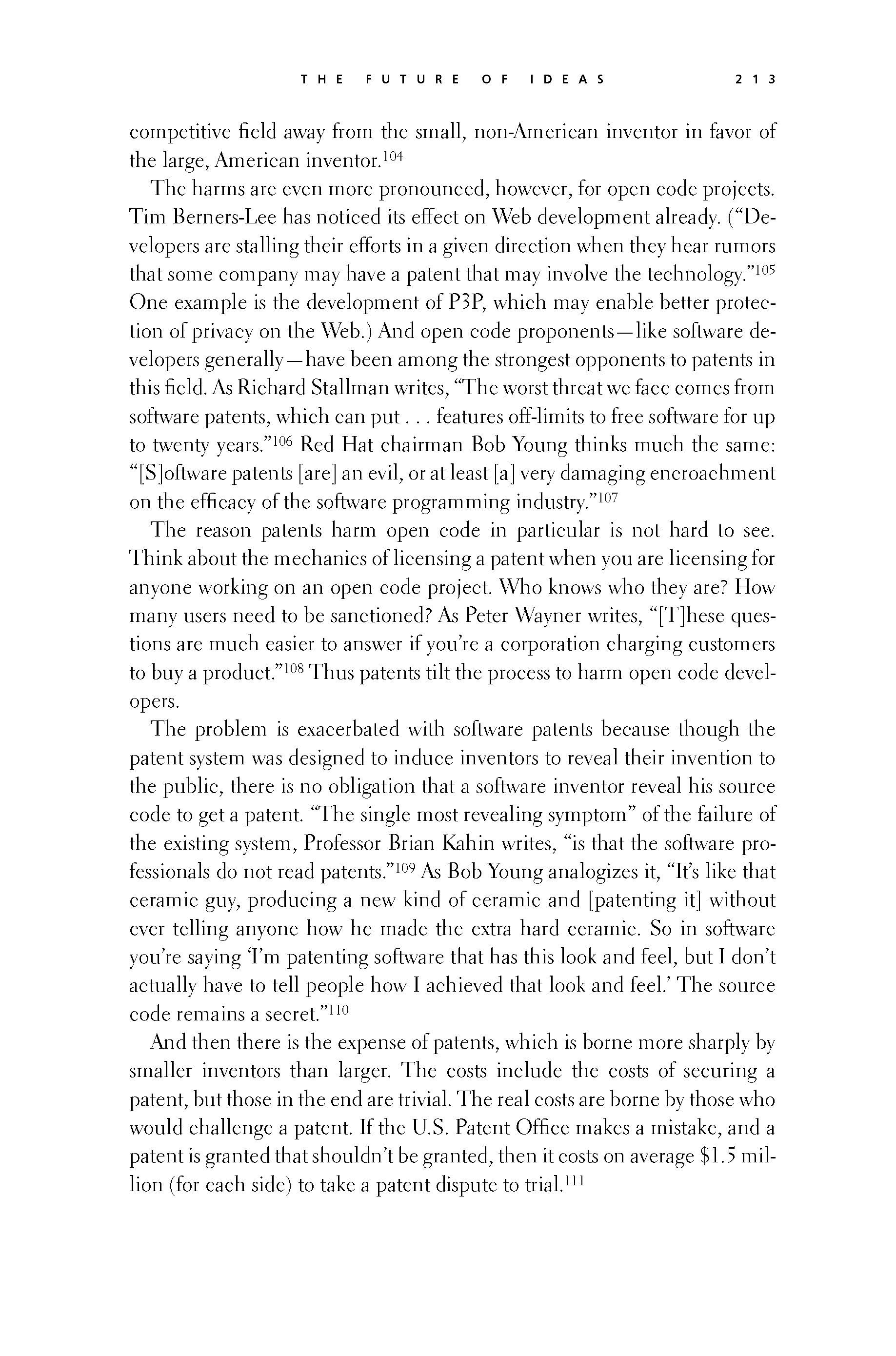 p212 _
-chap- _
toc-1 _
p213w _
toc-2 _
+chap+ _
p214
p212 _
-chap- _
toc-1 _
p213w _
toc-2 _
+chap+ _
p214
competitive field away from the small, non-American inventor in favor of
the large, American inventor.[11-104]
The harms are even more pronounced, however, for open code projects.
Tim Berners-Lee has noticed its effect on Web development already. ("De-
velopers are stalling their efforts in a given direction when they hear rumors
that some company may have a patent that may involve the technology."[11-105]
One example is the development of P3P, which may enable better protec-
tion of privacy on the Web.) And open code proponents -- like software de-
velopers generally -- have been among the strongest opponents to patents in
this field. As Richard Stallman writes, "The worst threat we face comes from
software patents, which can put... features off-limits to free software for up
to twenty years."[11-106] Red Hat chairman Bob Young thinks much the same:
"[S]oftware patents [are] an evil, or at least [a] very damaging encroachment
on the efficacy of the software programming industry."[11-107]
The reason patents harm open code in particular is not hard to see.
Think about the mechanics of licensing a patent when you are licensing for
anyone working on an open code project. Who knows who they are? How
many users need to be sanctioned? As Peter Wayner writes, "[T]hese ques-
tions are much easier to answer if you're a corporation charging customers
to buy a product."[11-108] Thus patents tilt the process to harm open code devel-
opers.
The problem is exacerbated with software patents because though the
patent system was designed to induce inventors to reveal their invention to
the public, there is no obligation that a software inventor reveal his source
code to get a patent. "The single most revealing symptom" of the failure of
the existing system, Professor Brian Kahin writes, "is that the software pro-
fessionals do not read patents."[11-109] As Bob Young analogizes it, "It's like that
ceramic guy, producing a new kind of ceramic and [patenting it] without
ever telling anyone how he made the extra hard ceramic. So in software
you're saying 'I'm patenting software that has this look and feel, but I don't
actually have to tell people how I achieved that look and feel.' The source
code remains a secret."[11-110]
And then there is the expense of patents, which is borne more sharply by
smaller inventors than larger. The costs include the costs of securing a
patent, but those in the end are trivial. The real costs are borne by those who
would challenge a patent. If the U.S. Patent Office makes a mistake, and a
patent is granted that shouldn't be granted, then it costs on average $1.5 mil-
lion (for each side) to take a patent dispute to trial.[11-111]
[[213]]
p212 _
-chap- _
toc-1 _
p213w _
toc-2 _
+chap+ _
p214